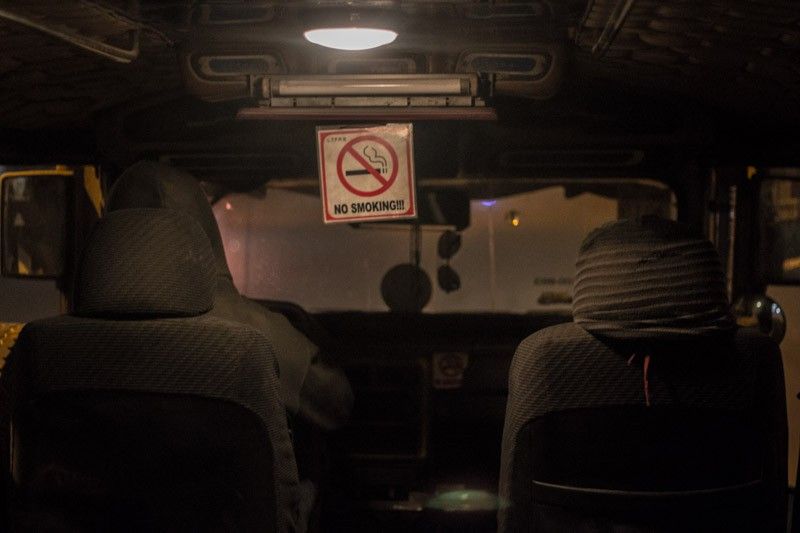DENR notes unhealthy air in Pateros, Northern Caloocan

MANILA, Philippines — The latest air quality update from the Department of Environment and Natural Resources (DENR) shows a marked deterioration in air quality in most cities from the department's last update, although improving in a few areas as well.
Here is the latest air quality update from the DENR, according to their Air Quality Monitoring System as of 8:00 a.m. on Thursday, January 16.
Air quality was measured in terms of Air Quality Index (AQI) which governments use to measure air quality. According to AirNow, higher AQI numbers indicate lower air quality.
Good Air Quality (Air pollution poses little to no risk)
- Biñan City: 4 AQI (previously 8 AQI)
- Malabon: 41 AQI (previously 23 AQI)
- Meycauayan City: 29 AQI (previously 21 AQI)
- Navotas City: 31 AQI (previously 48 AQI)
- Pasig City: 11 AQI (previously 3 AQI)
- Quezon City: 36 AQI (previously 51 AQI, moderately risky)
- San Juan: 48 AQI (previously 67 AQI, moderately risky)
- South Caloocan: 36 AQI (previously 42 AQI)
- Subic Zambales: 13 AQI (previously 17 AQI)
Moderate/Fair Air Quality (Moderate health risk for a very small number of people who are unusually sensitive to air pollution)
- Las Piñas City: 65 AQI (previously 24 AQI, good air quality)
- Mandaluyong: 95 AQI (previously 85 AQI)
- Marikina City: 71 AQI (previously 76 AQI)
- Parañaque City: 87 AQI (previously 22 AQI, good air quality)
- Silang, Cavite: 80 AQI (previously 47 AQI, good air quality)
- Taguig City: 64 AQI (previously 62 AQI)
Unhealthy Air Quality for Sensitive Groups (People with respiratory illnesses should limit outdoor exertion)
- North Caloocan: 103 AQI (no change)
- Pateros: 109 AQI (previously 73 AQI, moderately risky)
No update
- Antipolo City: previously 63 AQI
- Manila City: previously 71 AQI
- Muntinlupa: previously 53 AQI
In formulating an AQI per city station, the DENR takes into consideration Particulate Matter (PM) levels, which are divided into PM10 and PM2.5. The former is described as "coarse inhalable particles" with measurements of 10 micrometers, while the latter are "fine inhalable particles."
Most particulate matter in the atmosphere are a result of the reactions of chemicals such as sulfur dioxide and nitrogen dioxide, the DENR said in a briefer on their Facebook page.
These chemicals, they said, typically come from factories, industrial centers and even cars, while others come from construction sites.
The Environmental Management Bureau of DENR's Central Office also earlier provided citizens in areas whose air is affected a briefer on what to do:
- Follow evacuation protocols
- Stay indoors unless needed, close the windows and doors and do not run air-conditionining. Keep home from infiltration by using damp curtains, blankets, or clothing and keep pets indoors.
- Avoid areas downwind and areas directly hit by volcanic emission
- Ensure safe water and food supply
- Use dust masks and wear goggles or eye glasses
- If outside seek shelter and use a mask or handkerchief for breathing. Wear protective clothing especially if working in the ash fall, and goggles to protect the eyes.
- If possible do not drive, park your car under-cover or cover it. If you must drive, drive slowly as ash fall will reduce visibility. You may need to use the car headlights because of the reduced visibility. Do not use the car’s ventilation system.
Severe dips in air quality come amid what a House lawmaker as called "unscrupulous" persons selling face masks and other food and supplies at an unreasonable cost.
Reports of these sellers arose on social media in the hours following the initial eruption as stores ran out of supplies of the aforementioned face masks. Prices of ordinary surgical masks, normally priced at P30 per box, also skyrocketed to as high as P100 while the price of an N95 mask rose to P200.
Section 5 of Republic Act No. 7581 or the Price Act reads:
"[I]t shall be unlawful for any person habitually engaged in the production, manufacture, importation, storage, transport, distribution, sale or other methods of disposition of goods to engage in the following acts of price manipulation of the price of any basic necessity or prime commodity,"
The Price Act defines the term profiteering as "the sale or offering for sale of any basic necessity or prime commodity at a price grossly in excess of its true worth."
- Latest
- Trending

































